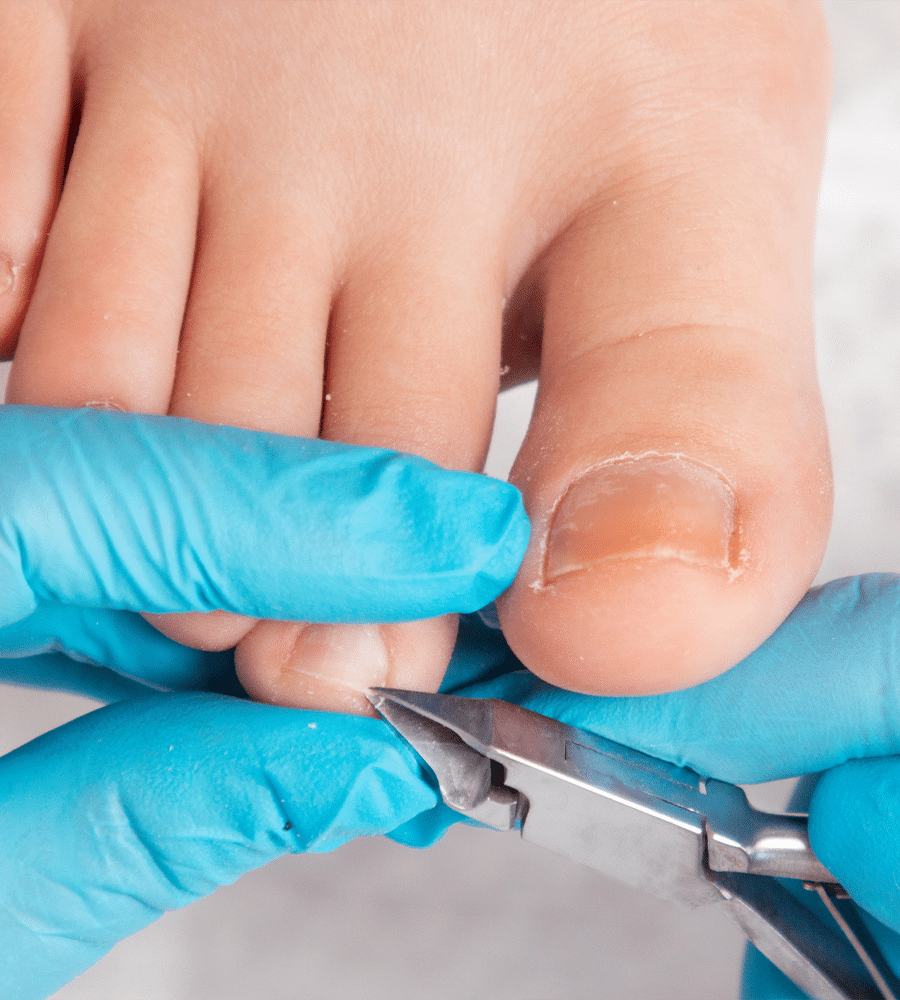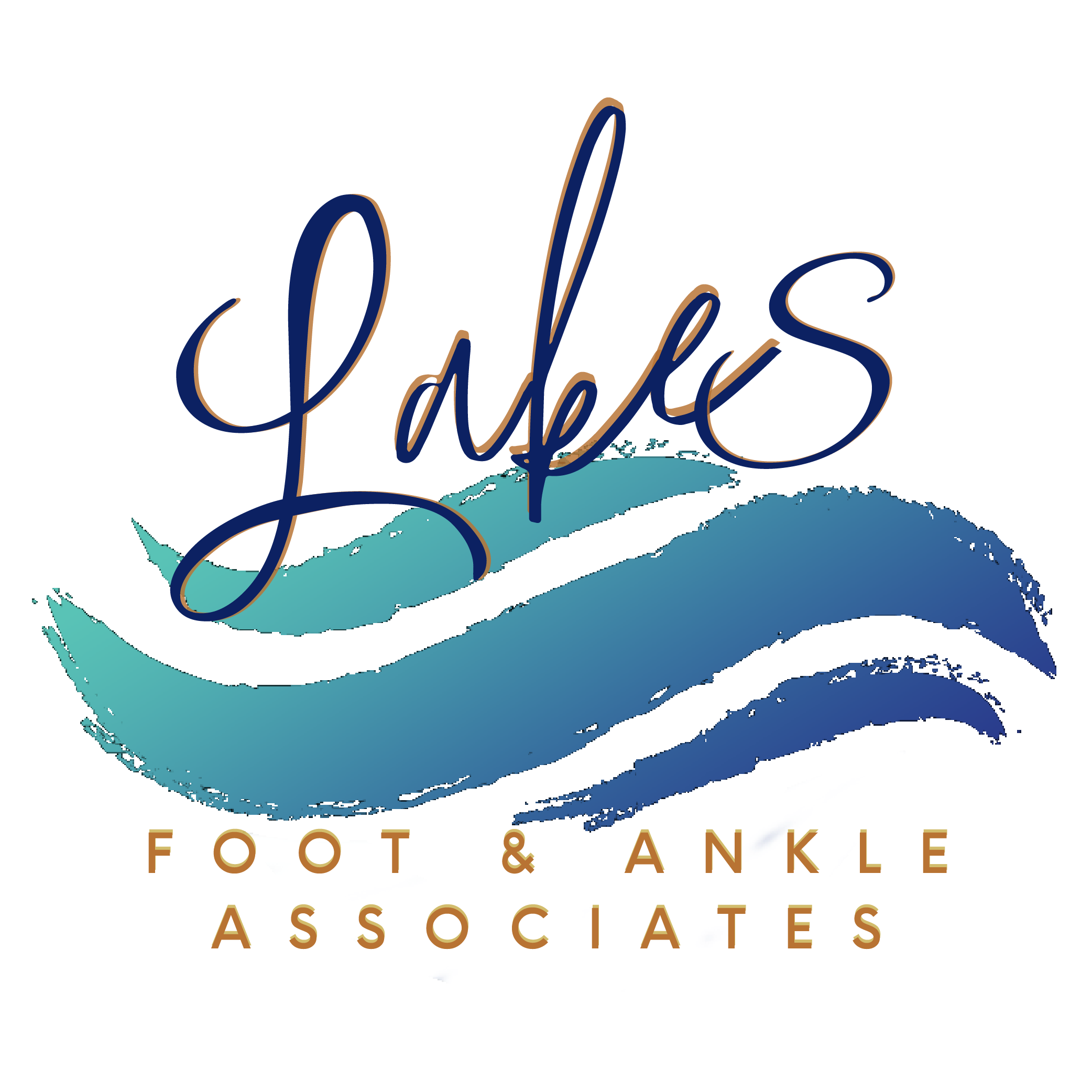Painless Ingrown Toenail Treatment in Commerce Twp, MI
Sometimes the smallest conditions can be the most painful. If you’ve ever had an ingrown toenail, you know there’s nothing insignificant about them. When the sharp edge or border of a nail digs into the skin, the pain when you bump your toe or put on a shoe can be intense. In the worst cases, an ingrown toenail can even become dangerously infected.
Fortunately, ingrown toenails are simple for a podiatrist to treat. At Lakes Foot & Ankle Associates, we’ve made the process as smooth and painless as it can be. Don’t wait to get help—contact our team today for a quick fix and fast relief!

What Causes Ingrown Toenails?
An ingrown toenail occurs when the corner, edge, or border of a toenail grows down into the soft surrounding tissue, rather than growing out over the toe as usual. The big toes are by far the most commonly affected, but the problem can occur on other nails, too.
With an ingrown toenail, extreme pain is common, potentially leaving you unable to wear shoes or walk. Other symptoms include redness, swelling, tenderness, and drainage. Ingrown toenails that do not resolve quickly may become infected.
Risk factors for ingrown toenails include wearing shoes that are too tight or too loose, poor nail trimming (always cut nails straight!), and heredity. Some people are more prone to ingrown nails due to the way their toes or nails or shaped. Having sweaty feet can also be a risk factor.
How to Avoid Ingrown Toenails
- Practice good foot care
- Wear open-toe shoes while the toe heals
- Avoid tight-fitting shoes
- Cut toenails straight across
- Keep feet clean and dry
Are Ingrown Toenail Infections Dangerous?
An ingrown nail might seem minor, but if left untreated, it can become severe. Complications may include bone infection, gangrene, foot ulcers, and circulation problems. If the skin grows too far over the edge of the nail, surgical treatment may be necessary. Always seek professional care under the any of following circumstances:
- Pain is severe or interferes with daily activities
- There is any sign of infection (inflammation, pus, etc.)
- Your condition has not improved or has gotten worse after several days of home care.
- You have diabetes, poor blood circulation, nerve damage/neuropathy, or any other condition that could complicate your recovery.
Ingrown Toenail FAQs
Mild ingrown toenails may resolve themselves on their own or with the help of home remedies. Here are a few things you can try:
- Soak your foot in warm water with Epsom salts daily to loosen the skin
- Massage the affected toe to reduce inflammation and push the skin away from the nail edge
- Use waxed dental floss to slide below and gently lift the nail edge out of the affected area
- Take over-the-counter medications to alleviate temporary discomfort
Most ingrown toenails can be cared for at home, but extreme ingrown toenails may require professional intervention. Fortunately, it only takes one quick same-day procedure for us to remove an ingrown toenail. With a quick numbing shot, careful trimming and removal of the ingrown portion of the nail, and some easy aftercare to heal properly, you’ll feel relief in no time!
If your ingrown toenail keeps coming back, we can destroy a small portion of the nail matrix underneath the part of the nail we remove. This prevents that part of the nail from growing back. Your nail will be permanently thinner, but the odds that you’ll get another ingrown toenail there will be virtually zero.
Put Your Best Foot Forward: Get Ingrown Toenail Treatment Today
When foot pain keeps you from enjoying your favorite activities, get the help you need at our Commerce Township podiatry office. Our friendly podiatric physicians regularly treat ingrown toenails as well as other common foot conditions.
If ingrown toenails are making it difficult to go about your day comfortably, don’t hesitate to speak with a foot specialist. Call (248) 360-3888 today or contact us online!
